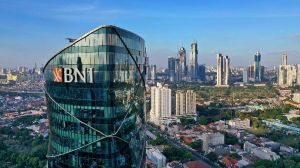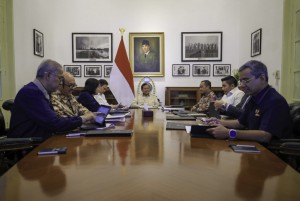Fajar Surya Wisesa projects US$ 20 million Capex for biogas facility
Packaging paper manufacturer PT Fajar Surya Wisesa Tbk has projected a US$ 20 million Capex for the construction of a new biogas facility for waste management and for maintenance.
Established in 1989, Fajar Surya produces paper, containerboard (liner and corrugating medium) and boxboard. The company's products are sold domestically and exported to other Asian countries as well as to Africa, the United States, the Middle East and Europe. Currently, the company has a subsidiary namely PT Dayasa Aria Prima (DayasaPaper) with 99.9% ownership.
Increasing sales target
This year, Fajar Surya (FajarPaper) has not planned for large-scale expansion. Instead, the company is projecting sales of IDR 11 trillion at the end of the year.
"Until the end of 2022, the company's net sales are targeted at IDR 11 trillion. Meanwhile, in terms of profit margin, it will be the same as in the third quarter of 2022, which is around 4%," Corporate Secretary Marco Hardy said during a virtual public exposure on December 12, 2022.
He said that the US$ 4 million Capex was used for refurbished machines and maintenance of DayasaPaper's capex in Surabaya. Meanwhile, the remaining US$ 11 million is for Capex maintenance for the FajarPaper production facility in Cikarang, West Java.
The company's work rate for January-September 2022 was considered stable. Its sales increased by 1.92% to IDR 8.82 trillion, compared to the previous year of IDR 8.65 trillion in the same period.
Fajar Surya also contributes to export abroad affecting the sales export growth to 21% from the total sales in Q3 2022, with destinations covering, China, Asia, the Middle East, and South Africa.
Risks in paper industry
However, the company's net profit decreased by 30.57% or IDR 352 billion by September 2022. While, the company's profit margin also decreased to 4%, compared to 6%.
According to Hardy, the decrease in the company's profit margin was due to the increasing prices of raw materials, especially recycled paper that needs to be imported from abroad.
Other factors include the rise of energy prices that have affected the company's profit margin in a span of 9 months in 2022.
According to CNBC Indonesia, the import of the raw material is facing a challenge with the regulation on impurity limit of 0.5% that is hard to fulfill and this could threaten the continuity of the industry.
Aryan Warga, Presiden Director of the Indonesian Pulp and Paper Association (APKI), said there were also problems in market competition with imported papers.
Already have an account? Sign In
-
Start reading
Freemium
-
Monthly Subscription
30% OFF$26.03
$37.19/MonthCancel anytime
This offer is open to all new subscribers!
Subscribe now -
Yearly Subscription
33% OFF$228.13
$340.5/YearCancel anytime
This offer is open to all new subscribers!
Subscribe now






